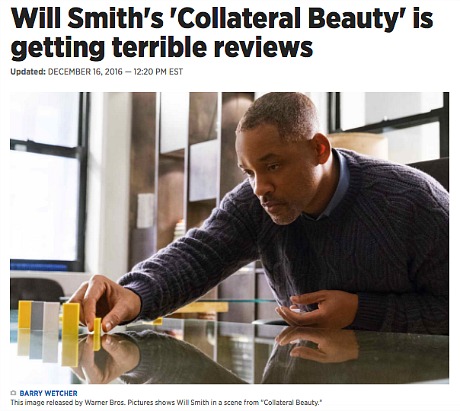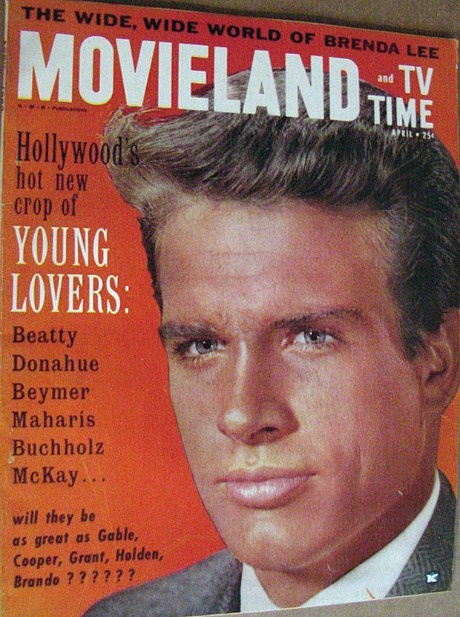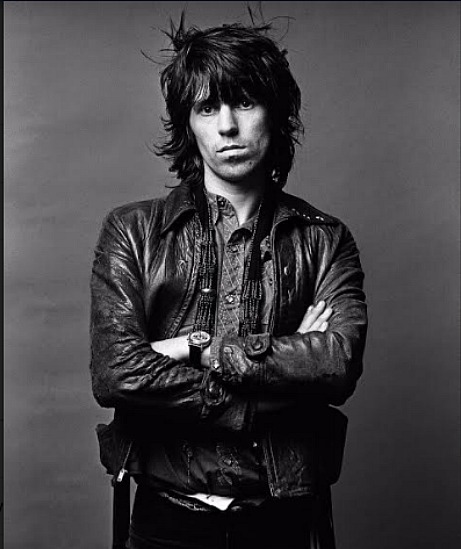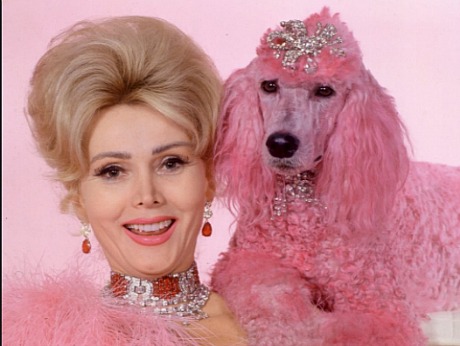I have a built-in weakness as far as listing the most deplorable films of 2016 (or any year) goes because I tend to avoid the shit sandwiches, and so I didn’t even see Miracles From Heaven, Nina, The Brothers Grimsby, Alice Through The Looking Glass, Warcraft, Yoga Hosers, Bad Moms, Divergent: Allegiant, Inferno, Independence Day: Resurgence, Bad Santa 2, Teenage Mutant Ninja Turtles: Out of the Shadows, Pride and Prejudice and Zombies, Dirty Grandpa or Zoolander 2, which others have placed on their Worst of ’16 lists.
But I saw at least a few awful-awfuls, and the two that have tied for HE’s Worst Film of the Year prize, hands down, are David Frankel‘s Collateral Beauty (which I despised so much that I left a little before the one-hour mark) and Timur Bekmambetov‘s Ben-Hur.
If you want to disqualify my Collateral Beauty judgment because I bailed halfway through, you’d have to concude that Ben-Hur is HE’s worst because at least I watched it start to finish.
In my 8.19 review I called Ben-Hur “one of the lowest, cheesiest, scurviest, lemme-outta-here films made or distributed by a major U.S. studio, ever. Almost everything about it stinks of mediocrity — the tedious writing, the grayish color scheme, the C-grade cast delivering soap-opera performances, the low-budget vibe despite a reported $100 million having been spent.
“It’s like a 1987 Golan-Globus version of Ben-Hur starring Michael Dudikoff as Judah and Chuck Norris as Messala. It’s third-tier shit, shit, shit, shit, shit on almost every level.”
Significant stinkers that I actually suffered through: Batman v Superman: Dawn Of Justice, London Has Fallen, Man Down, Sea Of Trees, Suicide Squad, The Hollars, The Girl on the Train, etc.
Read more




